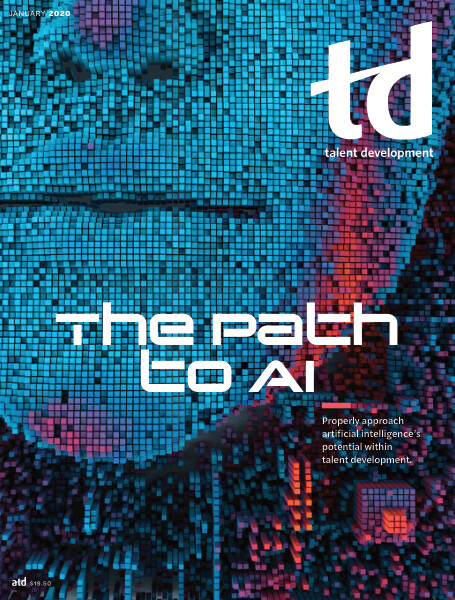TD Magazine Article
Learn How We Learn
Myths and bad habits throughout the work world keep learners from realizing their potential.
Thu Jan 02 2020

Access to education resources has grown, but myths about how people learn continue to hold back learning initiatives, as learning technology company Cerego uncovers in its This Is How We Learn report.
The analysis of more than 1 billion interactions from more than 1.5 million Cerego users found that learning platforms make a difference. The report unveils that mobile users studied twice as much and learned twice as much information as their desktop-only user counterparts. The research also found that smaller classes were not more beneficial—in fact, the data states the contrary. Students in classes of 200 or more made 53 percent more progress toward assigned goals than those in five- to 20-person classes.
Users learned best between 8 p.m. and 9 p.m. but recalled information most accurately between 7 a.m. and 8 a.m. Users forgot 70 percent of training in a 24-hour period and as much as 90 percent after 30 days. But Cerego said that three- to five-minute daily sessions can lead to improvements in long-term knowledge retention.
Tearing down assumptions about how people learn can help employers establish programs that meet employees' needs. The application of science to learning is not new, but employers may need to ensure their programs match with recommendations from those in the field. Perhaps those in charge of learning programs should place an emphasis on deep learning that crosses multiple cognitive areas and that occurs in small batches. Setting aside time for training courses and completing self-assessments are also effective practices.
Walmart is one company that has been at the forefront of training via learning technologies. Its recent commitments to virtual reality technology and training as a benefit are formats that other organizations are looking to mirror. But even the most sophisticated programs need stopgaps to prevent learning fatigue. Some potential strategies for employers are keeping learning material updated and relevant, as well as allowing for flexibility that permits employees to fit learning into their schedules when it's most convenient.
You've Reached ATD Member-only Content
Become an ATD member to continue
Already a member?Sign In

